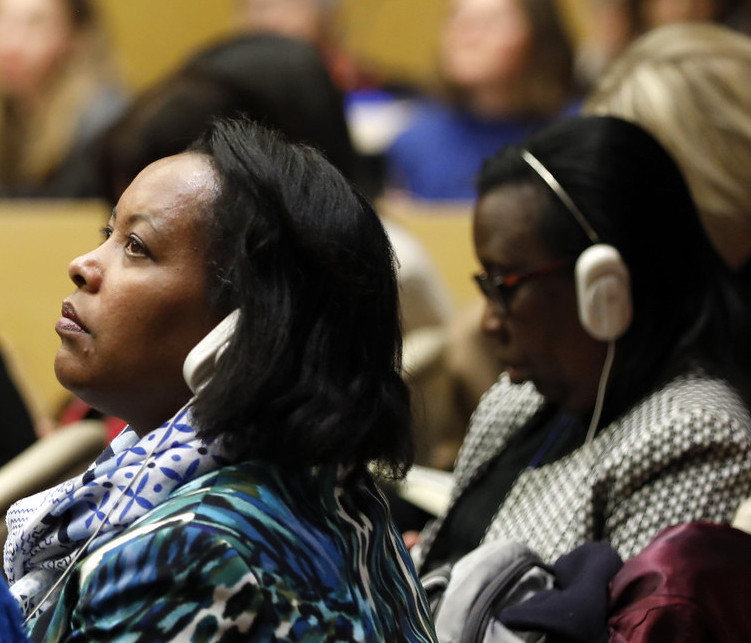Professor Ernestina Coast reflects on her research on inequities and injustices and how structural violence impacts people’s health and wellbeing, including abortion and sexual and reproductive health.
This is the eleventh blog in the 12 Days of Global Health series.
Inequities and injustices. These are two words (among many) that fuel my work in sexual and reproductive health (SRH). Pre-COVID-19, my education work was fuelled by the need to challenge, teach and equip students with some of the tools to tackle inequity and injustice. My research work grappled with evidence and focused on theorising inequities and injustices. Researching inequities and injustices through the lens of COVID-19 has forced us to confront and reflect on our pre-existing understandings of these concepts, their origins and implications. It is a truism that bears repeating: COVID-19 “lays bare existing fault lines and inequities embedded in the interlinked structures of health systems, social institutions (including the economy), and governance and law” – inequities that are simultaneously structural and embodied by intersections of class, gender, race, ethnicity, dis/ability, age, and identities. From work with colleagues on abortion and adolescents, economics and structural violence, here are just a few of the inequities and injustices that we have been grappling with in 2020.
Agency, Autonomy & Adolescents: The inequity of structures
The highly constrained agency of adolescents over their bodily autonomy – whether, how and with whom to have sex – and how structural factors can inhibit or support their reproductive autonomy. In our comparative research with more than three hundred adolescents in three countries (Ethiopia, Malawi and Zambia) we showed how structural factors, including abortion laws and policies, impact adolescents’ abortion care-seeking trajectories. In Ethiopia, nearly all (98%) of the adolescents we interviewed had a safe abortion in a public health facility, reflecting that safe abortion services are freely available without need for justification for adolescents and are widely available in the public health sector. In Malawi, however, a highly restrictive abortion law combined with very limited service availability means most adolescent abortions are unsafe (96%). In Zambia, despite longstanding legal grounds for abortion, there is poor knowledge of the law and patchy service availability, greatly affecting access for adolescents – 34% of whom had a safe abortion in a public health facility. Led by Dr Kangaude, our research illustrates the ways in which abortion care is framed within the health system and communities have critical implications for equity and justice. Adolescents described the often complex trajectories they undertook to procure abortions of varying levels of safety. COVID-19 meant that plans for co-production with adolescents for animations and comics based on our research about abortion had to be rapidly adapted. Our plans for co-production were driven by an attempt to redress the inequities in whose voices are heard or listened to. We’re proud to have worked with PositiveNegatives to tell the stories of Kokeb, Mphatso and Mwansa. Watch this space for a series of papers led by team members as we try to do justice to the experiences of the adolescents who spoke with us.
COVID-19 lays bare existing fault lines and inequities embedded in the interlinked structures of health systems, social institutions (including the economy), and governance and law
Economic injustice and abortion
Framing abortion-related care only as a public health issue – the health consequences of unsafe abortion are profound – means missing critical lenses with important consequences. We need to understand how the economics of abortion operate to re/produce new forms of inequity. Are poorer people forced to resort to less safe abortion methods because the costs of safe abortion care are beyond their reach? We know that the distribution of economic power is a critical social determinant of health. Working with colleagues (Lattof, van der Meulen Rodgers, Moore, Poss, Strong), 2020 saw the publication of the first in a series of papers focused on the economics of abortion. Our work shows that if economic dimensions of abortion-related care-seeking are not considered by policies, laws, and health systems, then outcomes will continue to be inequitable and unjust.
Hot off the press on 14th December was a piece of work on structural violence that began as a “what about…?” musing with colleagues Dr Rishita Nandagiri and Joe Strong. Illuminated in this Twitter thread, our work explores how COVID-19 has revealed and magnified pre-existing inequities and injustices in abortion-related care provision and access. We use the concept of structural violence – the indirect violence that is (re)produced by systems (legal, political, economic, sociopolitical) – to show how “everyday” violence such as structural racism impacts people’s health and wellbeing, including abortion and SRH.
Privileged paradoxes
My privileged position of not experiencing precarity and being able to work from home during COVID-19 has brought its own paradoxes. Trying to cope with the demands of lockdown family life – and my work invading their privacy and space – but being busier than ever. Or, not travelling to and for work but being more mobile than ever with an explosion of webinars and virtual conferences. Institutions are realising that it is possible to engage meaningfully and virtually – something that disability activists have been fighting for a long time, with few takers. It took a pandemic for the ableist world to begin to grapple with this, and it is one of the things that I hope will persist post-pandemic. In the last month alone I have been able to listen to four great presentations. From each encounter there are nuggets to reflect on, hold and inform my own practice: from Dr Lai’s insights about premarital sexuality and abortion in China; to Dr Duffy’s commitment to “make a mess”; to Dr Palaccio’s description of the Hyde Amendment as a racist policy; to Dr Chiweshe’s reflections on being an African male pro-feminist working on abortion.
Institutions are realising that it is possible to engage meaningfully and virtually – something that disability activists have been fighting for a long time, with few takers. It took a pandemic for the ableist world to begin to grapple with this, and it is one of the things that I hope will persist post-pandemic.
We have set up a new seminar series on abortion and SRH – geography no longer a barrier to invitation and participation (it never should have been a barrier in the first place, and we should have done this years ago). I have – yet – to join the fabulous Abortion Book Club set up by the same colleagues; notwithstanding their brilliant reading list, I’m in awe of their ability to communicate powerfully through the use of a well-placed GIF.
I’m enjoying the unexpected ways in which video conferencing is – internet willing – flattening out some (but far from all) of the usual hierarchies and practices of meetings and encounters. That some – who might otherwise be less vocal face-to-face – are voicing via chat to powerful effect. That some of the usual voices cannot always dominate the virtual room in the same way. These virtual communities of practice are important spaces for encounters, engagement and listening – both for research and education; the community of practice led by Dr Akile Ahmet here at the LSE is one excellent example of this. I end 2020, inspired to continue to make [even more of] a mess in research and education – to grapple in new ways as a researcher and a teacher – with inequities and injustice in sexual and reproductive health.
The views expressed in this post are those of the author(s) and in no way reflect those of the Global Health at LSE Blog or the London School of Economics and Political Science.
Photo: UN Women launches new global monitoring report on SDGs. Credit: UN Women/Ryan Brown. Licensed under creative commons (CC BY-NC-ND 2.0).





